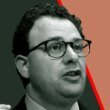Tesla Seeks to Overturn $243 Million Verdict in Notorious Florida Accident Case
In a significant legal development, Tesla has formally requested a judge to annul a recent $243 million verdict related to a fatal crash involving its vehicle. The new court documents, submitted on August 30, demonstrate Tesla’s intention to either have the verdict revoked or to pursue a retrial.
Tesla’s legal team argues that the jury’s decision from earlier this month contravenes foundational tort law in Florida and fails to align with basic principles of due process. Additionally, they assert that the jury unfairly placed two-thirds of the blame on their driver, George McGee, instead of reflecting a balanced assessment of responsibility.
Background of the Case
This high-profile case stems from a tragic accident that occurred in Florida in 2019, where McGee was behind the wheel of a Tesla Model S at night. At the time of the incident, he was utilizing the car’s Automatic Driving Assistance System—a feature that, while functional, does not match the capabilities of Tesla’s more advanced Full Self-Driving (FSD) software. Notably, both systems require drivers to maintain their hands on the steering wheel.
As McGee approached a parked SUV, neither he nor the vehicle’s automatic system applied the brakes. Ignoring a stop sign, McGee collided with the SUV, resulting in the death of 20-year-old Neber Benavides Lyon and significant injuries to his companion, Dillon Angulo.
Legal Arguments and Settlement Attempts
McGee faced individual prosecution and has since settled with the victims’ families, while Tesla declined a proposed $60 million settlement prior to the trial. In the latest filing, Tesla’s attorneys emphasize that product liability laws should impose penalties on manufacturers for vehicles that demonstrate dangers exceeding consumer expectations. They contend that McGee’s behavior during the incident was recklessly negligent; he was using his cellphone at the time, a point he has attested to in court.
According to Tesla, allowing the verdict to stand would deter innovation and mislead consumers, as it imposes heavy penalties on automakers for accidents resulting from driver misuse of their products. Furthermore, the company warns that upholding the verdict could dissuade manufacturers from pursuing safety enhancements due to fear of retribution stemming from driver negligence.
Criticism of Plaintiff’s Case
Tesla’s legal team has also criticized the opposing lawyers for allegedly swaying the jury with biased and irrelevant evidence, focusing on issues that deviated from the key details surrounding the 2019 accident. They claim that the trial was influenced more by external factors than by the actual circumstances of the crash.
Moreover, Tesla contends that the jury’s decision to assign shared responsibility indicates some acknowledgment of the complexity of the situation. The automaker believes that the ruling does not entirely absolve the role played by its automatic driving system or the misleading nature of its capabilities in the unfortunate accident.
Implications for Autonomous Driving Technology
This case reflects broader issues within the autonomous driving sector, especially concerning the responsibilities of both drivers and manufacturers. Tesla’s lawyers assert that the outcome of this trial has critical implications not just for the company, but for the future of autonomous driving technology as a whole.
While the court is currently deliberating on Tesla’s request to overturn the verdict or grant a retrial, experts and industry observers are closely monitoring the situation. The case raises pivotal questions about accountability in an era of increasing reliance on automated driving systems, and it underscores the ongoing debates regarding safety, technology, and legal liability.
As Tesla prepares for its next legal steps, the outcome of this case will likely influence public perceptions of automated driving technologies and the responsibilities of manufacturers and drivers alike. The ramifications are not only significant for Tesla but could also set a precedent for the entire automotive industry and its approach to handling similar accidents in the future.
Conclusion
Tesla’s legal battle over the $243 million verdict underscores the complexities and responsibilities that come with advanced automotive technology. While its focus on driver accountability highlights a critical aspect of vehicle operation, the role of automation in accidents will continue to be a contentious subject in courtrooms and the public eye. As this high-stakes case unfolds, it promises to shape the future of autonomous driving legislation and consumer expectations dramatically.








